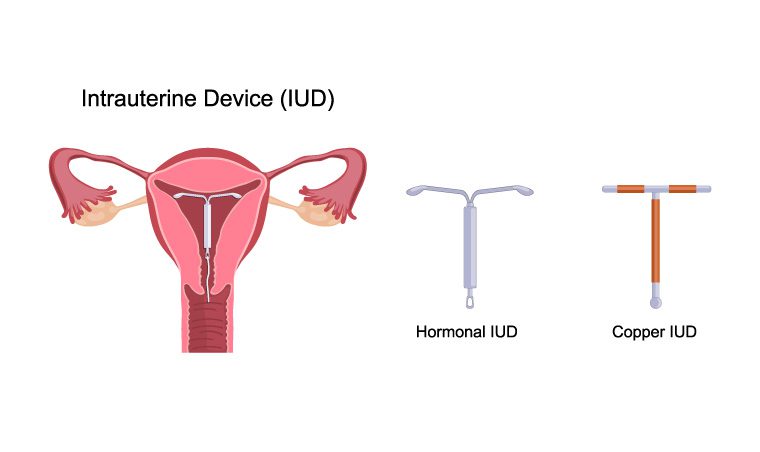The Benefits of IUD: A Comprehensive Guide
Welcome to our comprehensive guide on the benefits of Intrauterine Devices (IUDs). In this article, we will explore the various advantages of using an IUD as a contraceptive method. If you are considering birth control options, understanding the benefits of IUDs can help you make an informed decision. Let’s dive in!
Highly Effective and Long-Lasting
IUDs are one of the most effective forms of birth control available. They have a failure rate of less than 1%, making them more reliable than most other methods. Once inserted, an IUD can provide contraception for several years, depending on the type you choose. This long-lasting protection means you can enjoy peace of mind without worrying about daily pill reminders or frequent contraceptive changes.
Convenience and Low Maintenance
Unlike other birth control methods, IUDs require minimal effort and maintenance. Once inserted by a healthcare professional, you can forget about it for several years. There is no need to interrupt intimate moments for contraception, and you can engage in sexual activities without worrying about its effectiveness. Additionally, IUDs do not interfere with the spontaneity of your sex life.
Hormonal and Non-Hormonal Options
IUDs come in two main types: hormonal and non-hormonal. Hormonal IUDs release a small amount of progestin, a synthetic hormone, into the uterus. This hormone thickens the cervical mucus, making it difficult for sperm to reach the egg. Hormonal IUDs can also help reduce menstrual cramps and make periods lighter. On the other hand, non-hormonal IUDs, also known as copper IUDs, work by creating an environment that is toxic to sperm, preventing fertilization. They do not contain any hormones and are suitable for those who prefer a hormone-free contraceptive option.
Reversible and Quick Return to Fertility
One of the advantages of IUDs is their reversibility. If you decide to conceive or no longer require contraception, you can have the IUD removed by a healthcare professional. Unlike some other birth control methods, such as sterilization, IUD removal does not permanently affect fertility. Fertility usually returns quickly after IUD removal, allowing you to plan for pregnancy when the time is right for you.
Reduced Risk of Ectopic Pregnancy
Ectopic pregnancy is a potentially life-threatening condition where the fertilized egg implants outside the uterus, typically in the fallopian tube. IUDs significantly reduce the risk of ectopic pregnancy compared to no contraception. The presence of an IUD prevents the fertilized egg from implanting in the fallopian tube, reducing the chances of this serious complication.
Protection Against Uterine Conditions
Some types of IUDs, particularly hormonal ones, offer additional benefits beyond contraception. They can help protect against certain uterine conditions, such as endometrial hyperplasia. This condition involves the thickening of the uterine lining and can lead to abnormal bleeding. Hormonal IUDs help maintain a thin uterine lining, reducing the risk of endometrial hyperplasia and its associated complications.

In conclusion, IUDs offer numerous benefits that make them an excellent choice for contraception. Their high effectiveness, long-lasting nature, convenience, and low maintenance make them a popular option among women. Whether you prefer a hormonal or non-hormonal option, IUDs provide reliable contraception while offering additional advantages such as reduced risk of ectopic pregnancy and protection against uterine conditions. If you are considering birth control, consult with your healthcare provider to determine if an IUD is the right choice for you. Take control of your reproductive health and enjoy the benefits of IUDs!
Frequently Asked Questions about the Benefits of IUD
1. What is an IUD?
An intrauterine device (IUD) is a small, T-shaped contraceptive device that is inserted into the uterus to prevent pregnancy.
2. How does an IUD work?
IUDs work by releasing either copper or hormones into the uterus, which prevents sperm from fertilizing the egg or stops the egg from implanting in the uterus.
3. Are IUDs effective?
Yes, IUDs are one of the most effective forms of birth control, with a failure rate of less than 1%.
4. Can IUDs be used by everyone?
IUDs are suitable for most women, including those who have never been pregnant or have had children. However, it’s best to consult with a healthcare provider to determine if it’s the right choice for you.
5. What are the benefits of using an IUD?
Some benefits of using an IUD include long-term contraception, high effectiveness, convenience (no need to remember daily pills), reduced menstrual bleeding and cramps, and the option of easily removing it when desired.
6. Are there any side effects of using an IUD?
While side effects vary among individuals, common ones include cramping, irregular bleeding, and changes in menstrual patterns. These usually subside after a few months.
7. Can an IUD protect against sexually transmitted infections (STIs)?
No, IUDs do not protect against STIs. It is important to use barrier methods like condoms to reduce the risk of contracting infections.
8. How long can an IUD be used for?
Depending on the type, IUDs can be used for 3-12 years. Some can be removed earlier if desired.
9. Can an IUD affect fertility?
No, once an IUD is removed, fertility typically returns to normal. It does not have a long-term impact on a woman’s ability to conceive.
10. Is the insertion of an IUD painful?
Some women may experience mild discomfort during insertion, but it is usually brief. Local anesthesia or pain medication can be used to minimize any pain.




